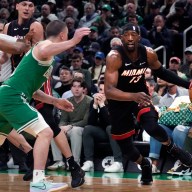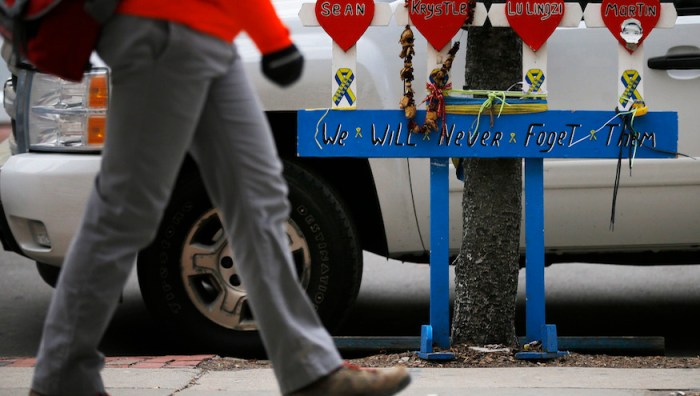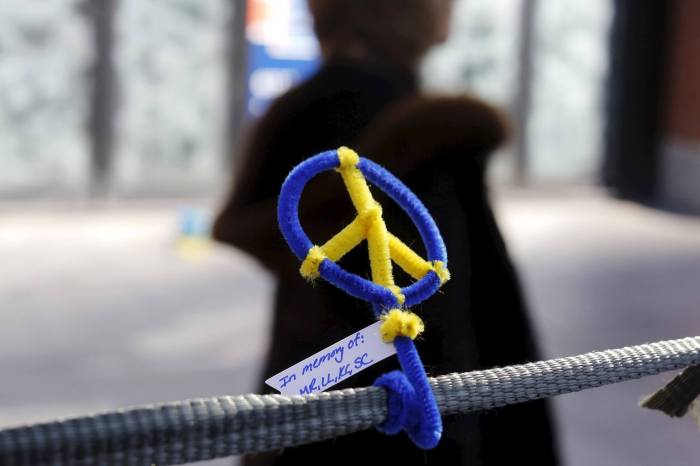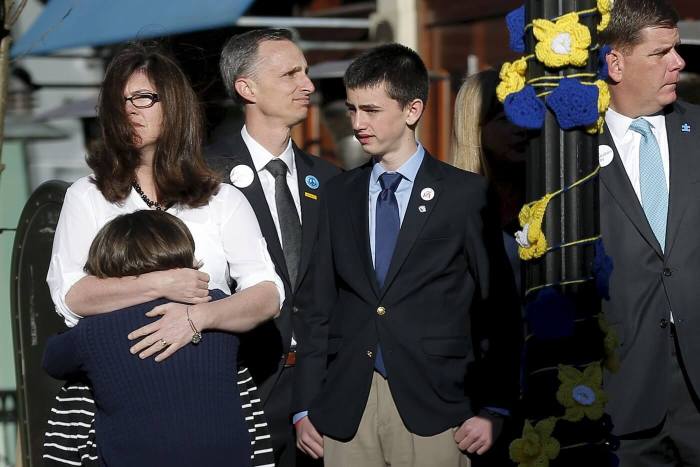When bombs tore through Boylston Street on April 15, 2013, the city of Boston showed the world the meaning of compassion and brevity when strangers rushed to the aid of those wounded in the blasts. There were those who ran into the heart of utter havoc to help the afflicted while crowds fled in terror. On Wednesday, a hometown hero was one of the three servicemen awarded the Soldier’s Medal, a high honor of bravery and heroism for armed forces service members who are not on the battlefield at the time of their decision to risk their lives and ignore personal danger to aid those in need, for the first time in Massachusetts history. Massachusetts-born National Guardsman Staff Sergeant Mark Welch of the 106th Transportation Company was running the marathon with two fellow Bay State Guardsmen when the bombs went off. At that moment, their training kicked in and they ran toward the carnage to help the victims in any way possible. Awarding this medal requires a signature from the President of the U.S., as authorized by Congress. The Army had never awarded this medal to any Massachusetts soldier despite the illustrious history of heroic figures. “On behalf of the people of the Commonwealth, I want to thank you for the work that members of the guard do every day,” Baker said. “I want to say how much I appreciate that the President of the United States and the U.S. Department of Defense has recognized, for the first time ever, three of our members and given them their highest award.” They had just finished the Tough Ruck, carrying a 35 lbs ruck sack while marching through the Marathon course from Hopkinton to Boylston Street to raise money for the families of fallen Massachusetts service members. Welch finished the race at about 1:30 p.m. and was stretching and resting with other marchers when the bombs went off. “Staff Sergeant Welch ran to the scene of the explosions, disregarding the risk that more bombs might be set off,” Major General Leon Scott Rice said. “He rendered his services to first responders and used his training to help those in need of medical attention.” As crowds ran away from the blasts, Welch ran into bleachers near the first explosion, first helping direct the panicking, fleeing crowds, then pulling away the barricade fences and scaffolding that separate the route from the fans. This cleared a path for first responders, EMS, doctors and nurses, directly saving lives. “April 13 was a very climatic and tragic day for the people of Boston,” Governor Charlie Baker said. “But there were tremendous acts of courage and selflessness that day and the days following. Having served two tours of duty in Iraq, Welch was no stranger to chaos and carnage, but seeing it at home was an entirely different experience.
“It definitely is different, because it’s your own people,” Welch said in an interview with the U.S. Army blog in 2014. “You expect stuff like that to happen in war. You have to live that day to day, knowing that something might happen, in order to do your job over there. Here, you don’t expect that. When something does happen, it hits a different nerve. You cannot train for what happened in Boston.” It took two years of pushing in order to have the Secretary of the Army to review and sign off on the awarding of the medals. First Lt. Steve Fiola and First Sgt. Bernard Madore were also awarded Soldier’s Medals in April for their roles in aiding at the Marathon. “When you find heroes amongst us, you see common people stepping up and doing the right thing when the time calls for it,” Rice said. “That’s the basis of Boston Strong.”


















